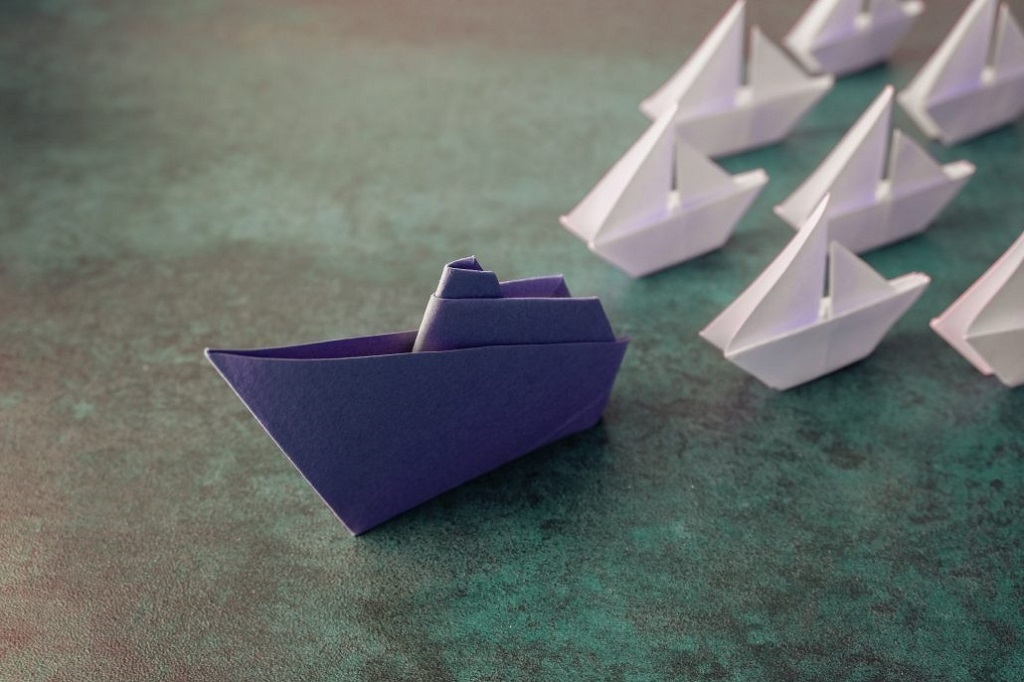The Global Maritime Forum conducted its first Future Maritime Leaders Essay Competition, which gave young people (aged 18-30) a chance for their voice to be heard in the debate about the future – and companies a chance to listen.
Eirini Gerani, Account Executive at American Hellenic Hull Insurance Company Ltd, participated in the competition stating the global challenges facing the maritime industry.
The global maritime industry is currently facing a wide range of challenges stemming from geopolitical changes, the new IMO regulations, technological evolution including Artificial Intelligence, threats to global trade growth and the need for greater sustainability. While the world is undergoing profound transformation, we consider these changes as bringing opportunity, especially from the perspective of sustainability.
Geopolitical changes that must be navigated by the maritime industry are many and various. They include the crisis in the Persian Gulf, instability in the Middle East, the widening of the Suez canal, the situation of states in Latin America, the trade war between USA and China, the rise of extremists in countries important for shipping such as Nigeria, the emergence of new maritime centers such us Singapore with the EU trying to upgrade its presence as a single maritime cluster. These are only some of the developments we currently have to deal with.
In addition, the new regulations introduced by the International Maritime Organization aim to make the shipping industry a sustainable conduit for global trade. The regulations imposing a low sulphur cap for fuel emissions from 01/01/2020, the 50% reduction of carbon emissions by 2050, proposals for slow steaming that are being discussed in the IMO’s working groups, and growing interest in cleaner fuels such as LNG, LPG, MGO and biofuels constitute a historic challenge for the maritime adventure. The transformation of the maritime industry towards a more eco-friendly environment is a path we all must walk.
Meanwhile, it is a fact that the shipping industry is one of the most proactive industries, investing more in new technologies than any other market. Smart technologies are central to many discussions. The maritime industry focuses on investments in technologies such as the Internet of Things (IoT), automation and the new unmanned vessels being trialled in the North Sea, big data analytics and cloud services. Such investments aim to modernize the industry increasing efficiencies and sustainability.
“Facing the 21st century as a “millennial”, it is a fact that our generation wishes to bring innovation that will drive the shipping industry forward. In terms of globalization, we also declare that we need a more sustainable environment. We bet on inclusive growth with a more holistic perspective on the industry and the human well-being. We have the opportunity to set a long – term sustainable economic environment, but hard work globally will be required to achieve and maintain such a goal. The investment in new talent and the safety and protection of the staff is another crucial issue we have to deal with, if we aim to consider ourselves as pioneers in the industry. To gain a more sustainable environment we shall all strengthen the pillars of Environment, Society and Economy”, mentioned Eirini Gerani.
Furthermore, she underlined: “Personally, I am working in the marine insurance industry, one of the most sustainable industries in the entire maritime adventure. The marine insurance services shall be considered as a commodity serving the maritime industry. American Hellenic Hull Insurance Company provides hull and machinery services to the international maritime industry. My colleagues and I are committed to incorporate social, environmental and business issues into a sustainable holistic strategy towards our insurance business. Working closely and transparently with our clients, we intend to serve the UN Sustainable Development Goals to achieve inclusive growth in our business, and promote at the same time human well-being and talent”.
Source: maritimes.gr









































